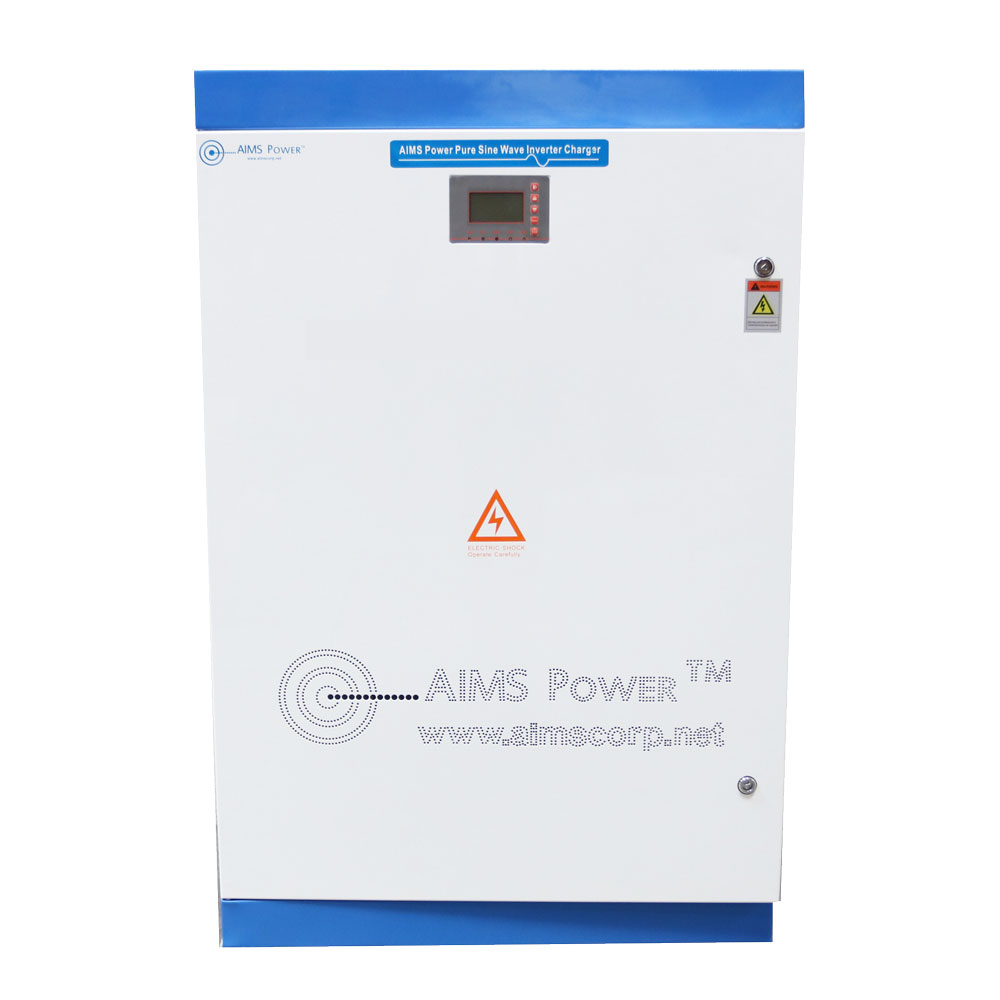realpinochet
Make Stuff In America Again!
- Joined
- Jul 4, 2022
- Messages
- 554
I found a few guys on youtube using High voltage / Low frequency inverters and after reviewing their motives I agree it seems like a much better option in efficiency and durability. Seems like it's less wiring in general and smaller wires due to less current. It would reduce heat in the batteries and the inverter which in theory would be good, as mentioned, for efficiency and durability. I found a guy using a Aims inverter for his shop and a gentlemen on youtube using a sandi inverter for his rural property. The sandi is a high voltage / Low frequency inverter that has the ability to have the PV connected to the inverter and run without a battery and additionally connected to the grid for grid assist when batteries are too low. It appears the newer modules have a built in charger to. It's a isolation transformer so you have full isolation from the grid, this should eliminate the G/N bound issues, and no backfeed. I believe he said he's using the 30KW version and it cost him like 5 grand or so..could be wrong on that. I'm looking at the 40KW version. The two issues I see are:
1. There's not much option for HV batteries unless you build your own.
2. The inverters don't appear to be stackable so you can run two for redundancy. (I was thinking of using 2x20KW)
As for the batteries, can you take standard rack mount batteries like the EG4 and connect them in series to say 250-400 VDC? Per this article maybe..but maybe not on the ones that have built in circuit breakers that are not rated for such high voltage. I haven't got into researching batteries much yet. Seems like most people are using those blue bricks that come out of EV/s. Personally I'd rather buy ones that just needed to be connected in series and not build the whole battery.
If this theory has any validity ..then why haven't the big guys like outback,schneider,solark got into high voltage solutions for residential installs?
Summery, seems like you can get a heavy duty inverter capable of high output for a decent price. Reliability and durability should be better over time due to less heat. The ability to use less and smaller wire. A quick search here seemed to have people mention this but I haven't seen a in length technical discussion on it for pros / cons. Has anybody here used a inverter like this.
Sandi:
 www.sandi.cc
www.sandi.cc
3phase:

 www.aimscorp.net
www.aimscorp.net
Youtube:
1. There's not much option for HV batteries unless you build your own.
2. The inverters don't appear to be stackable so you can run two for redundancy. (I was thinking of using 2x20KW)
As for the batteries, can you take standard rack mount batteries like the EG4 and connect them in series to say 250-400 VDC? Per this article maybe..but maybe not on the ones that have built in circuit breakers that are not rated for such high voltage. I haven't got into researching batteries much yet. Seems like most people are using those blue bricks that come out of EV/s. Personally I'd rather buy ones that just needed to be connected in series and not build the whole battery.
If this theory has any validity ..then why haven't the big guys like outback,schneider,solark got into high voltage solutions for residential installs?
Summery, seems like you can get a heavy duty inverter capable of high output for a decent price. Reliability and durability should be better over time due to less heat. The ability to use less and smaller wire. A quick search here seemed to have people mention this but I haven't seen a in length technical discussion on it for pros / cons. Has anybody here used a inverter like this.
Sandi:
Off Grid Inverter-Zhejiang Sandi Electric Co.,Ltd
 www.sandi.cc
www.sandi.cc
3phase:

30KW 30,000 PURE SINE POWER INVERTER CHARGER 300 VDC 208 VAC THREE PHASE
That’s right! You read it correctly. We offer HUGE DC to AC pure sine inverter chargers 30KW up to 200KW. Introducing the NEW AIMS extra large power inverter charger product line in 240 split phase or 208 three phase. This off-grid, back up power inverter is perfect for businesses, large homes...
 www.aimscorp.net
www.aimscorp.net
Youtube:
Last edited:


